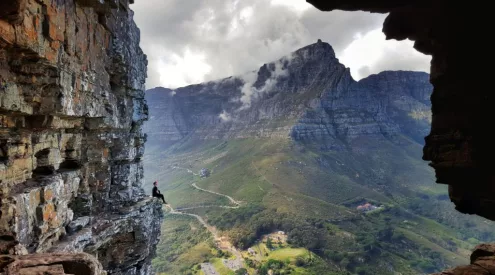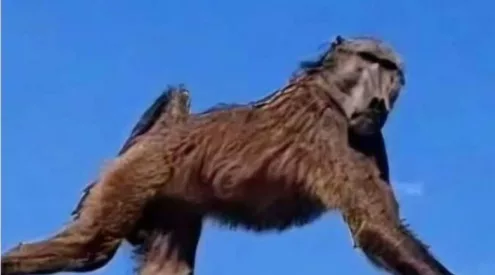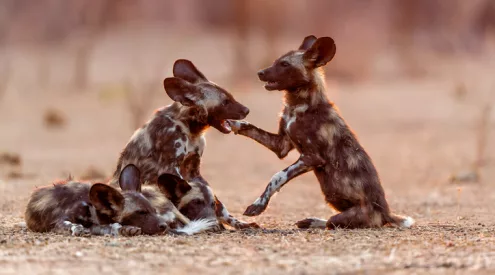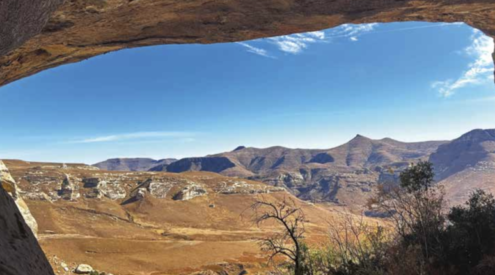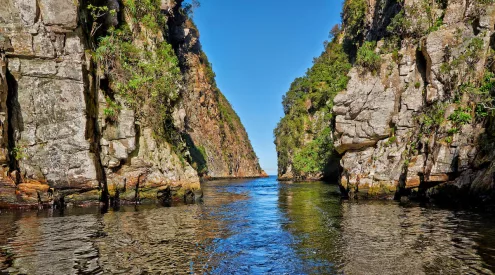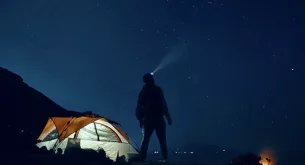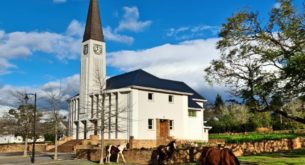These wild walking trails will bring you close enough to touch and smell the finer details of the bush.

Each of these three-night trails operates out of a dedicated wilderness camp with A-frame huts (hikers meet at and depart from the nearest main rest camp at the trail’s start). You’ll head out twice daily, carrying a daypack. Typically, morning hikes last five hours and afternoons two, but rangers take each group’s fitness levels into account. All meals are included.
Costs R4000 a person (non-Wild Card holders must also pay a daily conservation fee of R62). No under 12s allowed and no more than eight hikers per trail.
Tel: 012 428 9111, www.sanparks.org
Read: How to survive a walking safari
Six of the best Kruger walking trails
1. Nyalaland
The most remote of these six trails, Nyalaland departs from Punda Maria and traverses the north of the park, including the bird-prolific Pafuri region. During summer, mottled spine tails breed in the towering baobabs and the area is alive with European migrant birds such as the carmine beeeater, woodland kingfisher and a variety of cuckoos. There are far fewer animals roaming these parts compared to Kruger’s south, but look out for elephant and buffalo and rare trees such as the endemic sesame. The hill leading up to the Luvuvhu Gorge lookout is your biggest climb, but worth the effort.
2. Olifants
The views from the base camp across the Olifants River are reason enough to choose this trail, which departs from Letaba Rest Camp. Walk along the river, spotting hippos and fish-eagles along the way. Steep riverbanks will have you breathing faster, but the flat plains to the south of the river are easy and equally beautiful. This is the only trail that will take you into the ironwood forests of the Lebombo Mountains. Spot large herds of buffalo, perhaps encounter a pride of lion and closely observe signs left behind by elusive leopards.
3. Sweeni
The least challenging of the trails, Sweni departs from Satara Rest Camp and takes you along the open, flat savannas of central Kruger. Get close to large herds of zebra, wildebeest and buffalo and look out for lion and cheetah. The Sweni River, where hippos bathe alongside bateleurs and storks, provides a change of scenery. This trail’s treeless base camp is the best for stargazing. The call of the Mozambican nightjar and the scops owl add to the magic.
4. Metsi-Metsi
This is your best chance of seeing the Big Five on foot – dry season is ideal for game-viewing. Depart from Skukuza Rest Camp and explore the park’s game-rich east, close to Tshokwane Picnic Site. It’s an easy walk and, apart from a handful of granite koppies (good for spotting for klipspringer), the terrain is mostly flat and grassy, interspersed with patches of knobthorn and marula trees. During the rainy summer months, the grass, shimmering gold at dawn and dusk, comes up to your knees; wear long pants to avoid irritation.
5. Wolhuter
Departing from Berg-en-Dal Rest Camp, the trail explores the ancient granite hills in the southwest of the park and follows the footsteps of the renowned father-and-son ranger pair, Harry and Henry Wolhuter. The area is known for white rhino sightings. On the second day, the guides pump water into a waterhole beside the base camp and you can sit back and wait for elephant, giraffe, zebra and buffalo to come to you. Look out for the rare mountain reedbuck and admire the Zulu milkberry and Cape chestnut trees, found only in this part of Kruger.
6. Bushman
Set in the same area as the Wolhuter Trail and also leaving from Berg-en-Dal, but with a completely different focus. Discover bushman paintings more than 10 000 years old as you walk the paths trampled by elephants and rhinos. Hike up to hill shelters covered in artworks of animals that the San believed had spiritual powers – eland, kudu, giraffe, elephant and rhino. Some climbs are challenging, but the views of southwest Kruger from the top are worth the effort. You could come across impala, steenbok, mountain reedbuck and white rhino on your explorations.
Want to know where to stay? Check out our Kruger accommodation reviews, to make sure you book at the right camp.
And click here for information on walking safaris in northern Kruger’s Pafuri/Makuleke Concession.

